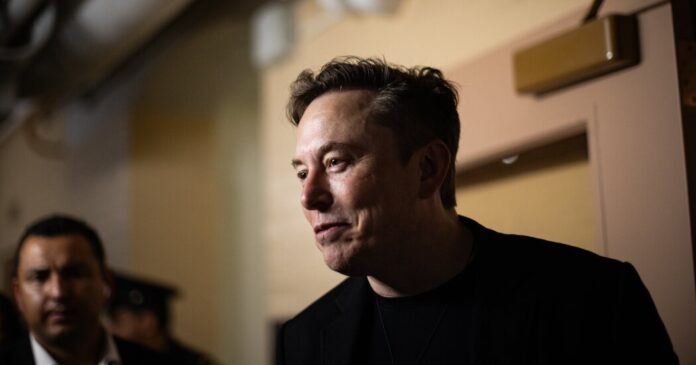In a stark contrast of American economic philosophies, Tesla shareholders overwhelmingly approved a plan Thursday that could make CEO Elon Musk the world’s first trillionaire, just as New York City elected a tax-the-rich candidate as their next mayor. These events highlight a widening divide in how Americans view wealth distribution and corporate leadership.
A Winner-Takes-All Approach
Based in Austin, Texas, Tesla shareholders largely embraced a “winner-takes-all” model of capitalism. They voted to award Musk shares worth an estimated $1 trillion if Tesla achieves ambitious financial and operational goals over the next decade. This includes targets like selling one million humanoid robots and 10 million paid subscriptions to the company’s self-driving software, significantly expanding Tesla’s market capitalization to $8.5 trillion from its current valuation of around $1.4 trillion.
Following the vote, Musk thanked shareholders, stating, “What we’re about to embark upon is not merely a new chapter of the future of Tesla, but a whole new book.” Though Tesla’s stock experienced a modest dip in after-hours trading, the company’s directors and many investors defended the compensation package as a crucial motivator for Musk to continue developing futuristic products like self-driving vehicles.
Mixed Reactions and Concerns
While proponents, like Cathie Wood of Ark Invest, argue the pay plan will benefit investors if ambitious goals are met, critics raise concerns about the concentration of wealth and corporate power. Thomas DiNapoli, New York State comptroller, described the plan as “pay for unchecked power,” rather than performance-based compensation.
The issue extends beyond corporate finance. Pope Leo XIV also commented, linking Musk’s compensation to a growing disparity between wealthy individuals and working people—a gap underscored by the fact that the median Tesla worker earned around $57,000 in 2024. Musk himself attempted to address poverty concerns by suggesting his company’s developing humanoid robot, Optimus, holds the solution, though that solution remains several years away.
Legal and Historical Context
This unprecedented pay plan builds on a similar package approved by Tesla shareholders in 2018. Notably, a Delaware judge last year struck down that 2018 compensation plan, valued at approximately $128 billion, citing a “deeply flawed” approval process. Tesla is currently appealing that decision.
The voting process itself allowed Musk, who owns roughly 15% of Tesla’s stock, to vote his own shares, potentially increasing his ownership stake to almost 29% should he meet the plan’s terms. Despite recent slumping profits and car sales, many smaller investors retained their stock and appeared willing to overlook Musk’s controversial foray into politics—especially his recent support for Donald Trump.
Broader Implications
The approval of Musk’s compensation plan was unsurprising, with only a handful of similar executive stock packages failing to pass shareholder votes in recent years. However, prominent investors like the manager of Norway’s sovereign wealth fund expressed reservations, citing concerns about the size of the award and its potential to increase reliance on a single individual (a risk known as “key person risk”). Others argued that the plan granted Tesla’s board of directors too much flexibility in awarding shares, even without achieving the outlined product goals.
Ultimately, the approval of Musk’s package demonstrates a clear division in American business and politics—a tension between those celebrating the success of high-earning executives and those advocating for more equitable systems of wealth distribution. It’s likely this event will continue to fuel political debate and highlight ongoing conversations about corporate governance and income inequality.
The compensation plan “was designed with one overarching purpose: to supercharge Tesla’s next phase of exceptional growth, innovation and value creation,” Robyn Denholm, the chair of the company’s board of directors, said in a letter to shareholders last month.






































